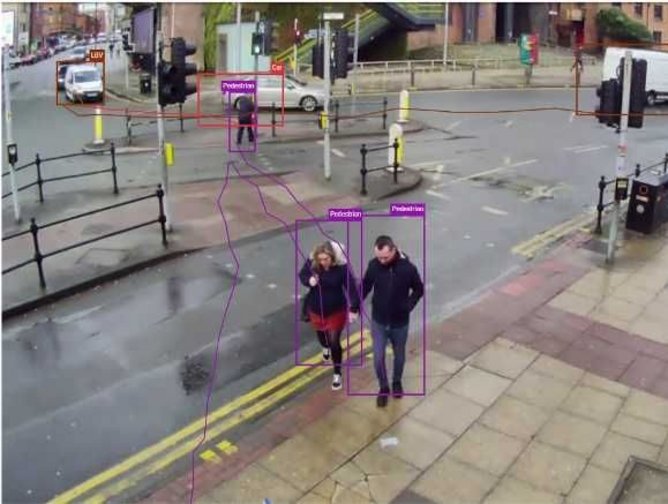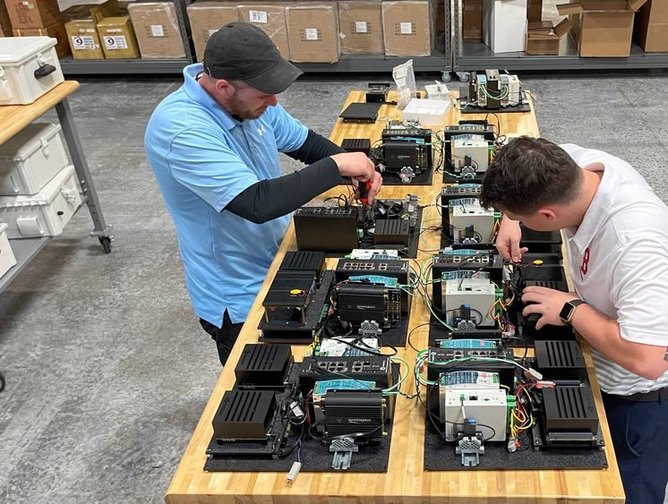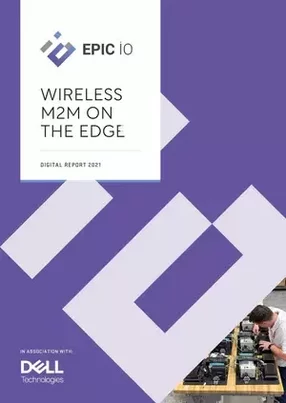Ken Mills happily describes himself as "a big nerd." The technology whizz-turned-entrepreneur is the CEO of Epic IO, the parent company of Broad Sky Networks – a machine-to-machine (M2M) platform providing wireless connectivity to mobile and fixed devices, and IntelliSite.
IntelliSite is an artificial intelligence (AI) and cloud-based management solution within an IoT platform that carries out heuristic-based monitoring, smart community as a service (SCaaS), with remote monitoring and management.
As well as providing a range of services directly to business customers, Epic IO has a partnership with Dell, playing a key role in the company's strategic offerings of dynamic, cutting-edge technology.
But Mills hasn't always been so entrenched in the world of IT. Initially, he opted for a career in physics. Following a stint in the U.S. Navy where he specialized in nuclear engineering, Mills moved into the computer industry and has never looked back.
"I love all things technology and I love to learn about interesting things," he says, describing the journey that saw him gain a prestigious college scholarship but quickly failed to excite him, thus leading him to the U.S. military. Mills qualified for the U.S. naval nuclear program —then had another epiphany.
"At some point, I realized that most people wouldn't want me to be the person running the nuclear reactor, so I got into computer technology instead," he laughs.
Following a stint at a technology sales company, he joined Cisco, and then Dell, where his grasp of technological trends enabled his quick rise to become the company’s CTO. During this period, Mills launched several successful technology startups — and it was just a matter of time before he branched out with his own vision.
Epic IO acquired Broad Sky and IntelliSite in 2020. Since then, the company has moved from strength to strength, as Mill's vision of the future of technology has firmly steered the company on the roadmap to success.
AI and M2M services
One of IntelliSite’s specialties is machine-to-machine (M2M) solutions. This service gathers data, analyses it, and then performs actions based on the information it processes. This ensures operations run smoothly across a wide range of industries. Mills uses the example of shops and customer behaviors following the pandemic. The whole dynamic has changed, he says, around something as simple as grocery shopping and current data is not accurately reflecting current behaviors.
"You know these kinds of dynamics are interesting because we’ve entered a whole new world. There is no data reporting how long a customer is willing to wait now. There is no data on how long a queue line is. No data revealing the optimal utilization or capacity is in your conference room or how your break room is being used, or your office space. The previous data is outdated. It no longer applies.
"Being able to use AI to understand the heuristics of the environment, to provide real actionable data back to managers, customers, cities, and campuses to show how their facilities and assets are currently being utilized is super valuable right now," Mills explains.
"We do that in our own conference room. Right now, I'm measuring how often my conference rooms are being used and by how many people. We can check to see if they are maintaining safe social distances and if they are wearing masks."
The collected data is analyzed, and insights are produced that can be acted upon, even in real-time scenarios. But just as often, companies need such information to create long-term strategies.
Mills explains: "Take the new health and wellness expectations that employees and customers have as they enter a facility. Contactless entry is now a requirement because people no longer want to touch a handle or surface when they walk through a door or use the buttons on an access pin panel — or even press their thumb to a sensor as a form of ID."
A growing number of use cases
The amount of use cases that M2M and AI — as part of an IoT installation — can leverage is, according to Mills, essentially endless, starting with the simplest situation.
"A great example of applying machine-to-machine services is making sure that ultra-cold storage freezers are working, so vaccines don't spoil. That sensor could have 5G or 4G connectivity with an application that is able to send alerts, saying 'Hey! This set of freezers across these multiple sets of manufacturers need to be fixed because they are not going to maintain the necessary temperature to provide proper storage levels for the vaccine."
The demand for such services is closely related to the growth of edge computing, says Mills, who believes that cloud and edge computing is becoming a much more integrated service, rather than one technology outperforming another.
"The use of edge computing is growing because a lot of compute processing is being driven to the edge of campuses and cities and towns and communities.
"Most of the time you need a high level of connectivity to deliver that data fast and accurately. Cellular connectivity is an exceptionally reliable and affordable way to do that."
With smart communities on the rise, along with more automated or “smart manufacturing” in industry and transportation, Epic IO is seeing a massive demand for its services.
"We are now seeing edge technology at traffic intersections being used to improve pedestrian safety and traffic analysis. We can put edge sensors with computational power at an intersection and then wirelessly send that data back to analyze and get results from hundreds or thousands of intersections to understand what's going on,” says Mills.
"We can find out how many near-accidents there are, what kind of vehicles are passing through, if there are more bikes now than recorded before. When we are armed with that granular level of information, we can adjust to the changing traffic dynamics in the city. Because the ongoing pandemic has changed everyone’s behavior. So, traffic patterns have changed too."
The end goal of this data collection, processing, and analytics, much of it in real-time, is, says Mills, to understand what's really happening.
"When you're armed with that information, you can work on reducing pedestrian fatalities to zero — which is a huge deal — by tapping into AI and M2M solutions."
Mills continues, "From a business point of view, connectivity and sensors allow us to build that whole picture for our customers. We use Broad Sky Technology to send that data where it needs to go."
Transformative technology
Epic IO's unique combination of services does not only facilitate the needs of businesses. Mills is passionate about empowering smart communities and fostering the potential to improve living conditions, the environment, and education, through the power of connectivity. This is one of the company's major initiatives for 2021.
"I don't like the term 'smart cities' because it's not accurate," Mills says. "Smart technology can be applied to all types of communities — from villages in India to university campuses — anywhere where people gather around the world. The term ‘city’ implies that only metropolitan areas would benefit from such connectivity. That is not true."
The work Epic IO is carrying out with IntelliSite is focused on this cause, he says, which will change people's lives for the better.
"How do you register for a vaccine on a web page if you don't have a computer at home?” he asks. “How do students participate in remote learning? The returning awareness of the digital divide has become particularly important. Widespread adoption of iPhones has masked the problem. Equal access to internet bandwidth remains an issue for households that don't have the economic means to purchase different services.
"Epic IO has solutions that are going to be very important in 2021 where we can deploy wireless connectivity to parks and buses and other places where people lacking access to that connectivity can obtain high quality, highly secure services."
The capability doesn't just involve internet access for education. "At the same time, we can deploy IoT wireless gateways in those locations, enabling cities to run things like smart parking meters, which generate new sources of revenue for the city. Sensors can also be used for air quality, or leak detection in the water system.
"All kinds of different examples can be cited. For the same investment and that provides wireless connectivity for those who are less fortunate, we can provide additional services to every citizen, improving the digitization of the city or the town or the community."
“In some way, we spent 2020 just trying to figure out the best application of this platform for 2021. Now, cities, towns, campuses are going to the next phase to provide high-quality services and resources to their citizens. And our technology, we hope, will play a big part in that."
Epic IO strategy
Mills is the first to admit that Epic IO has undergone some radical developments over the past twelve months and that 2021 is looking similarly busy. He laughs and shrugs as he talks about the company's progress.
"Yeah. We acquired three companies, launched a new ERP, launched a new CRM and we built three new products that didn't exist before now. So, 2020 was crazy.
"In 2021, we're launching our new enterprise AI platform. I believe it’s the first enterprise approach to delivering computer vision for customers across many different use cases and across cities, towns, and communities," Mills says proudly.
"You know, our ethos is rooted in helping to make the world a smarter, safer, more connected place. Ultimately, that is what we are focused on."
Mills says big tech providers like Cisco and Dell are committed to creating a better world through technology. "Even though we are much smaller than them, I believe we also have a responsibility and an opportunity to accomplish that with our technology, too. We are very interested in building solutions with integrated software and hardware technologies that are used for good and applied in the right way to drive a better, safer, smarter, more connected world."




